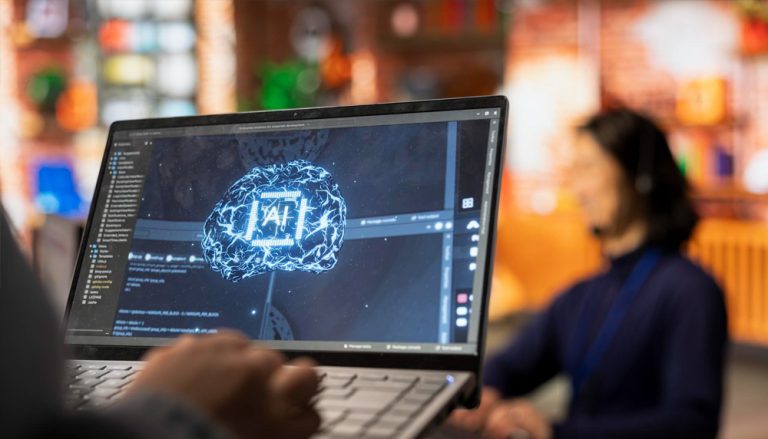
Last updated on April 12, 2024
Debunking Myths About Artificial Intelligence
Artificial Intelligence (AI) is a field that evokes images of sentient robots and futuristic scenarios, thanks to popular science fiction. However, the reality of AI is both more mundane and more fascinating. In this blog, we will explore and debunk some of the most common myths surrounding AI, separating the science fiction from the science fact.
Myth 1: AI Can Think Just Like Humans
One of the biggest misconceptions about AI is that it possesses human-like intelligence and consciousness. In reality, AI systems are designed to perform specific tasks, whether it’s recognizing speech, translating languages, or playing chess. These systems are based on algorithms and data, and they do not possess self-awareness or emotions. The field of AI is still far from creating an artificial general intelligence (AGI) that mirrors human cognitive abilities.
Myth 2: AI Will Lead to Massive Job Losses
The fear that AI will automate all jobs and lead to widespread unemployment is prevalent. While it’s true that AI and automation will transform the job market, history shows that technology often creates more jobs than it destroys. For instance, the introduction of personal computers led to a whole new industry. AI is likely to augment human jobs rather than replace them entirely, emphasizing the need for a workforce skilled in AI and machine learning.
Myth 3: AI Is Infallible and Unbiased
Another common myth is that AI is entirely objective and free from biases. However, AI systems are only as good as the data they are trained on. If this data contains biases, the AI will likely replicate or even amplify these biases. For example, facial recognition technologies have faced criticism for lower accuracy rates for certain demographic groups. It is crucial for AI developers to work towards ethical AI by ensuring diversity and inclusivity in their data sets.
Myth 4: AI Can Surpass Human Intelligence Imminently
The concept of ‘singularity’ – a point where AI surpasses human intelligence – has been a topic of much speculation. However, most experts agree that we are still decades, if not centuries, away from such a scenario. Current AI technologies, while advanced, are limited to narrow tasks and lack the general problem-solving abilities of the human brain.
Myth 5: AI Is Just About Robots
When people think of AI, they often envision robots. However, AI is much broader and encompasses areas like data analytics, natural language processing, and pattern recognition. AI is integrated into everyday technologies, from recommendation algorithms on streaming services to virtual assistants on smartphones.
Myth 6: AI Can Fully Automate Complex Decisions
AI is often touted as a solution for automating complex decision-making processes. However, while AI can assist in these processes, it cannot fully replace human oversight, especially in areas requiring ethical judgments, emotional intelligence, and deep contextual understanding. For instance, in healthcare, AI can assist in diagnosis, but the final decision-making rests with the medical professionals.
As we continue to advance in the field of AI, it’s important to have a realistic understanding of its capabilities and limitations. AI is a powerful tool that can significantly benefit society, but it is not the all-knowing, all-powerful entity often portrayed in science fiction. By debunking these myths, we can focus on leveraging AI responsibly and ethically, ensuring it serves to augment human capabilities and improve the quality of life, rather than replacing or diminishing it.
In conclusion, AI represents a remarkable blend of technological prowess and human ingenuity. It’s essential to approach AI with a balanced perspective, acknowledging its transformative potential while remaining cognizant of its current limitations. As we journey further into the age of AI, let’s embrace the real advancements and prepare responsibly for the changes it will bring, ensuring a future where AI works in harmony with humanity. Hope our experts at Blanco were able to address some of the most trending myths regarding AI. For more information, please visit us at www.blancoinfotech.com






